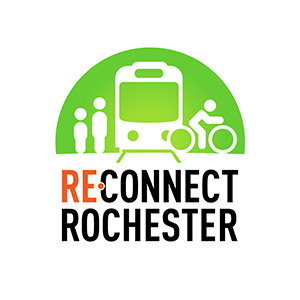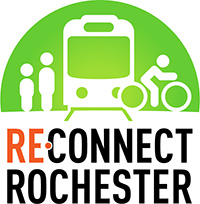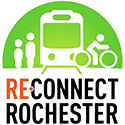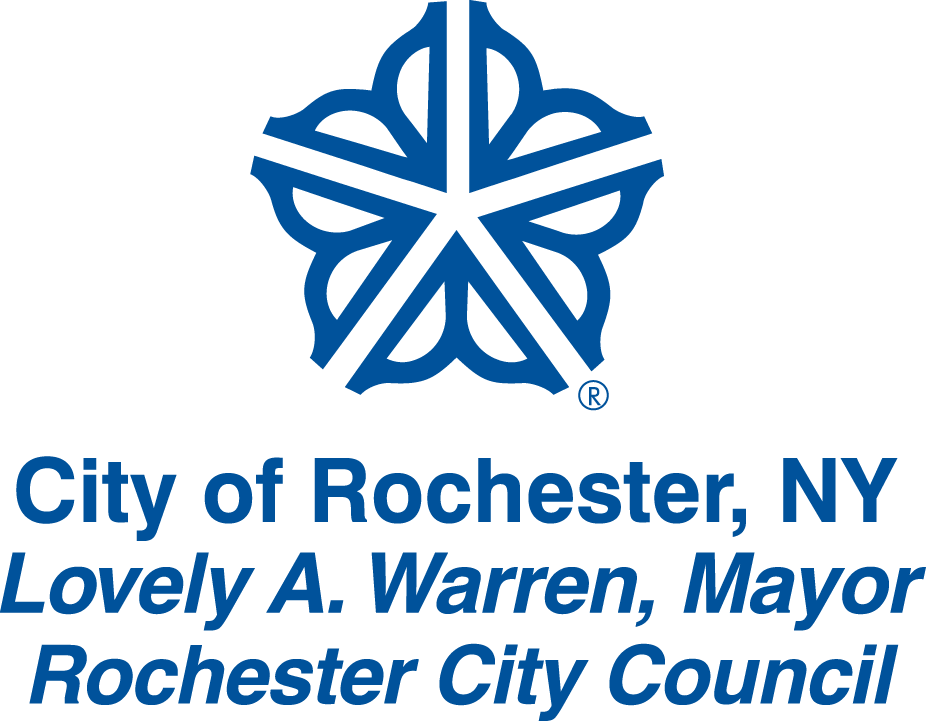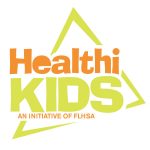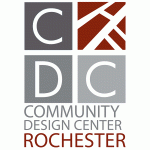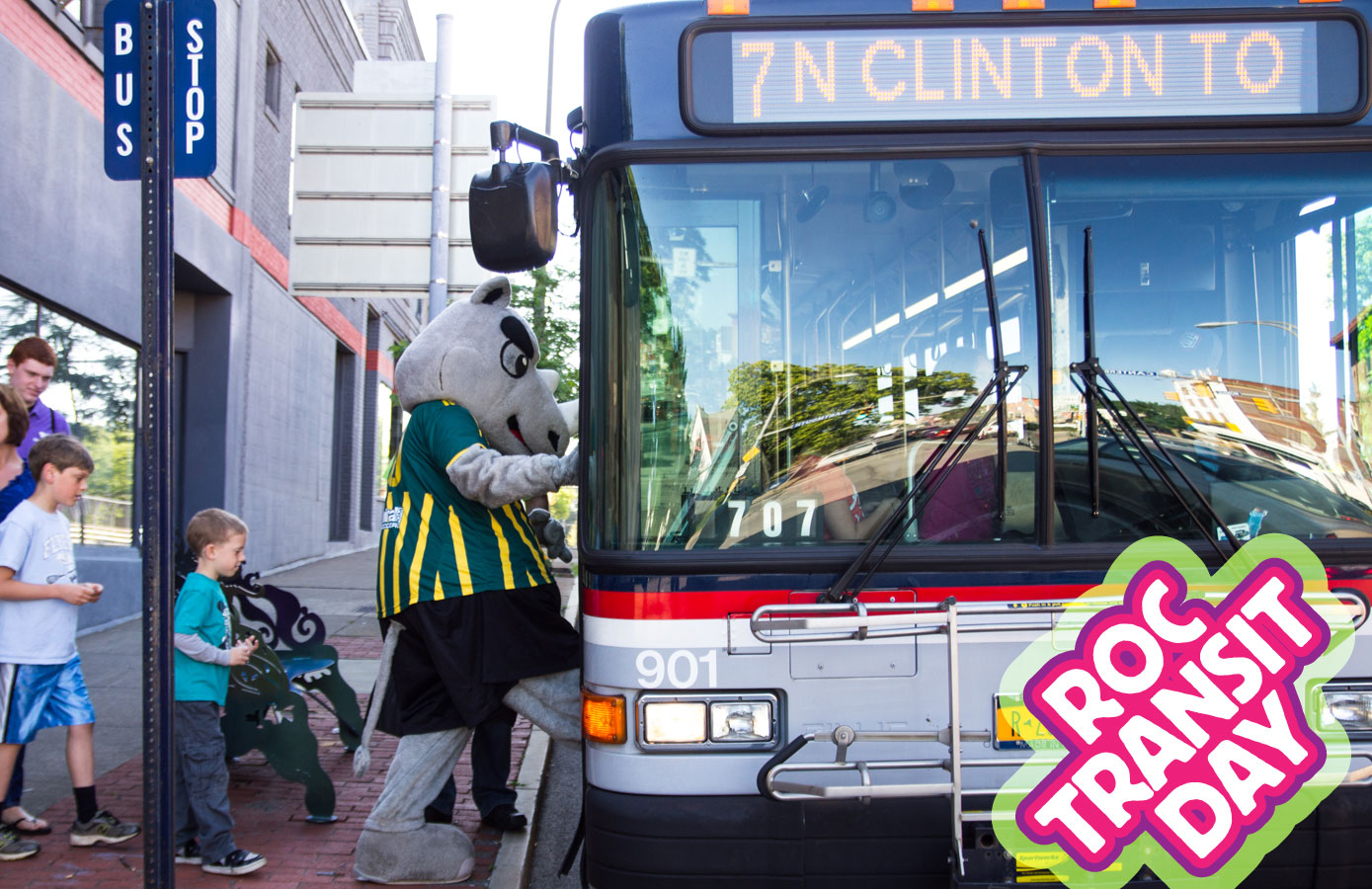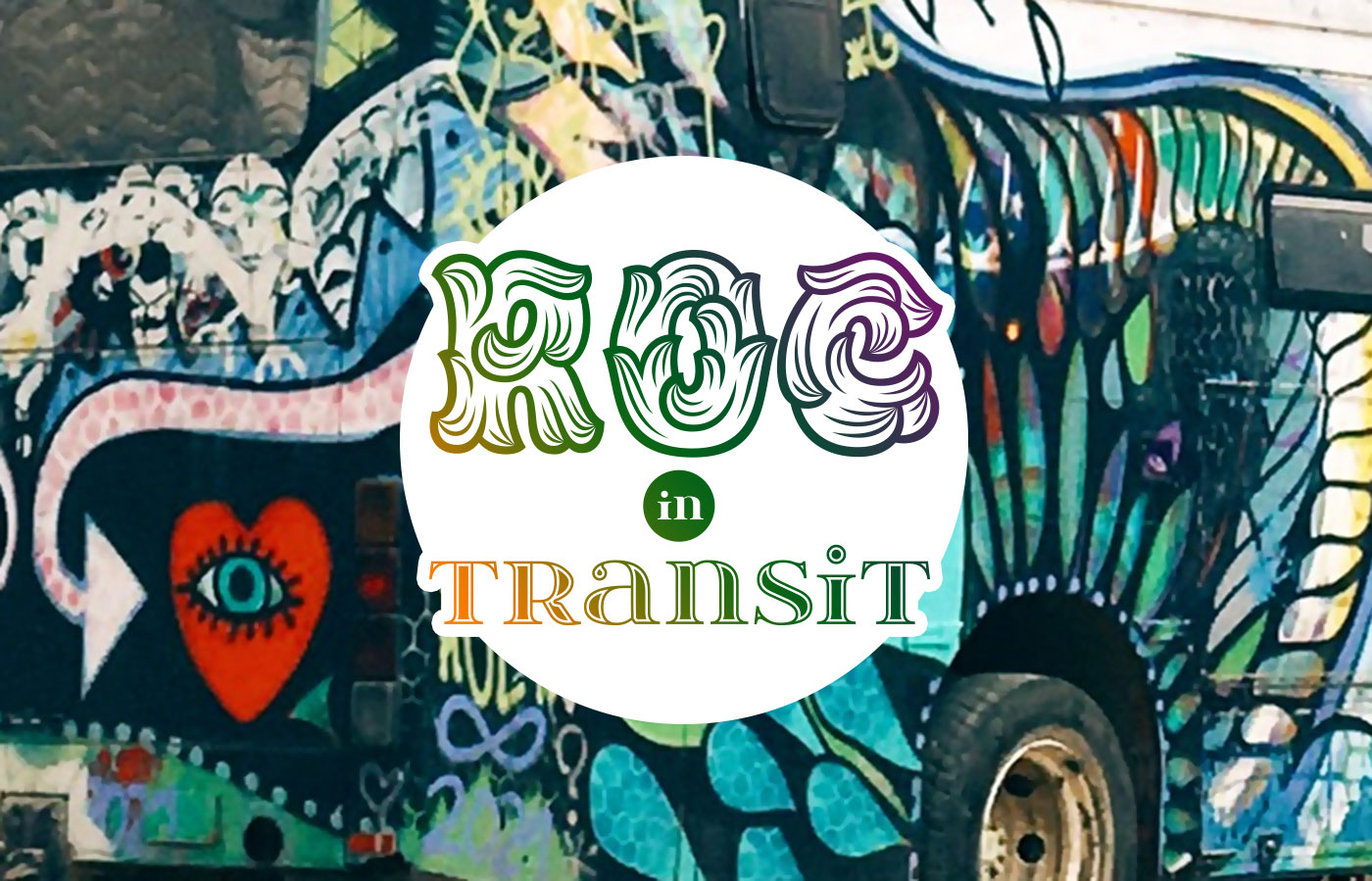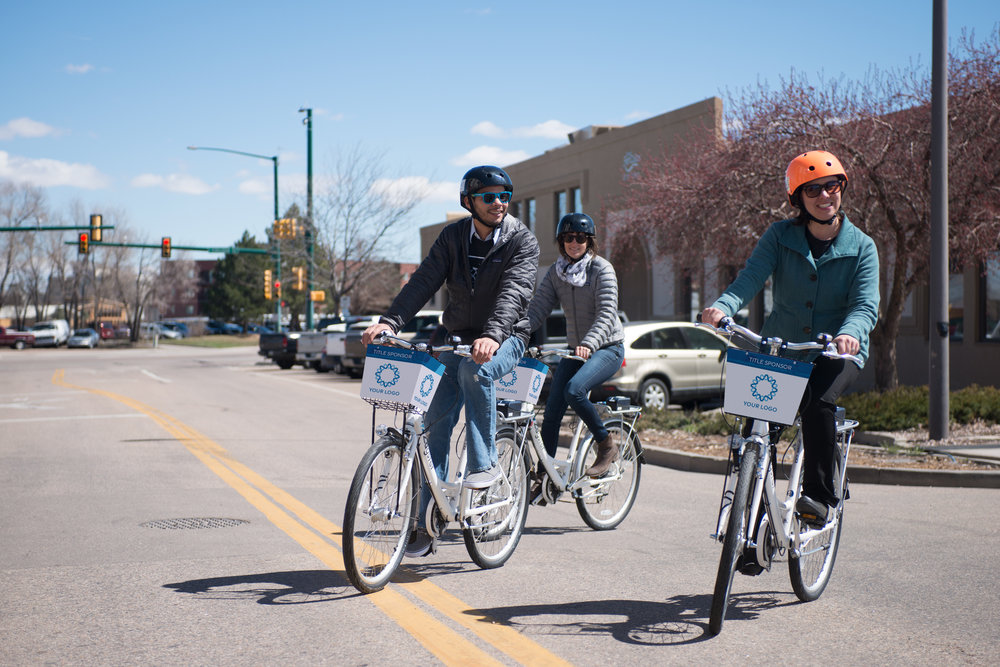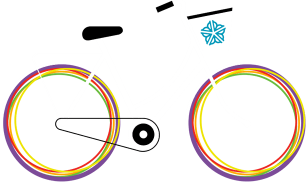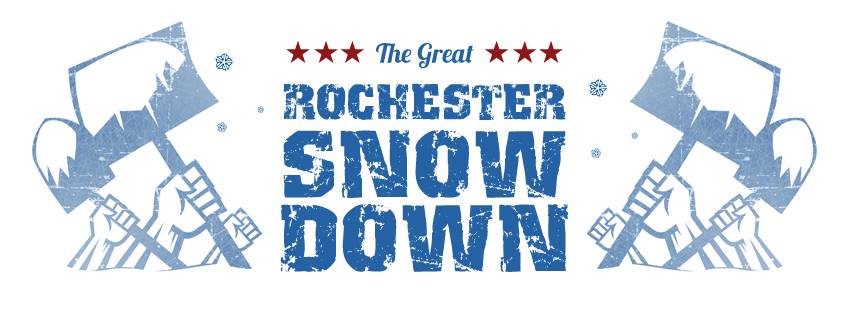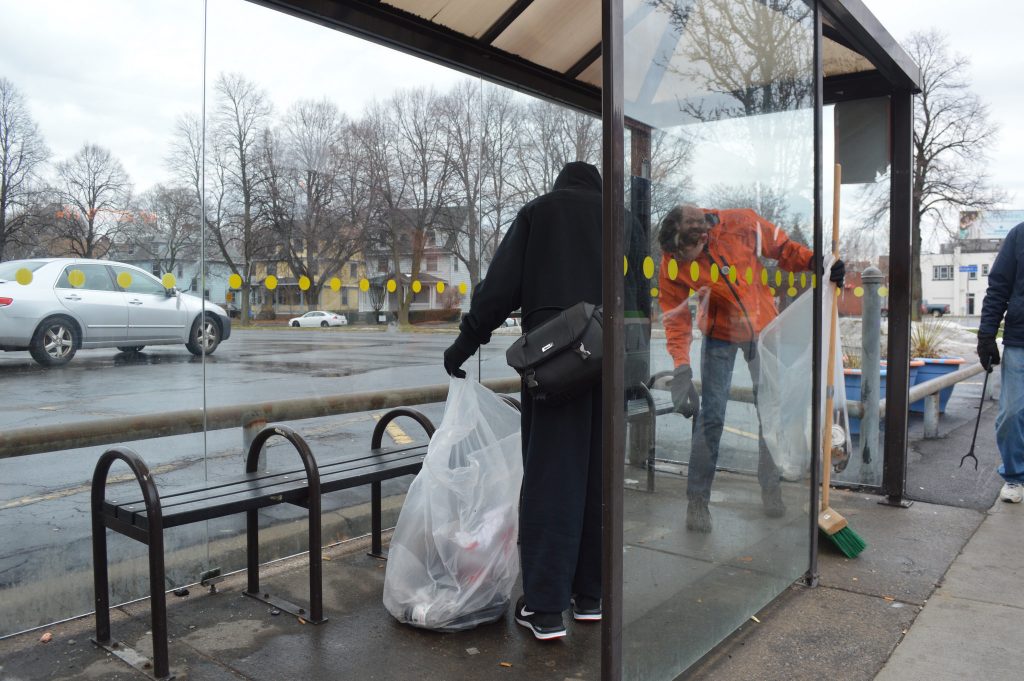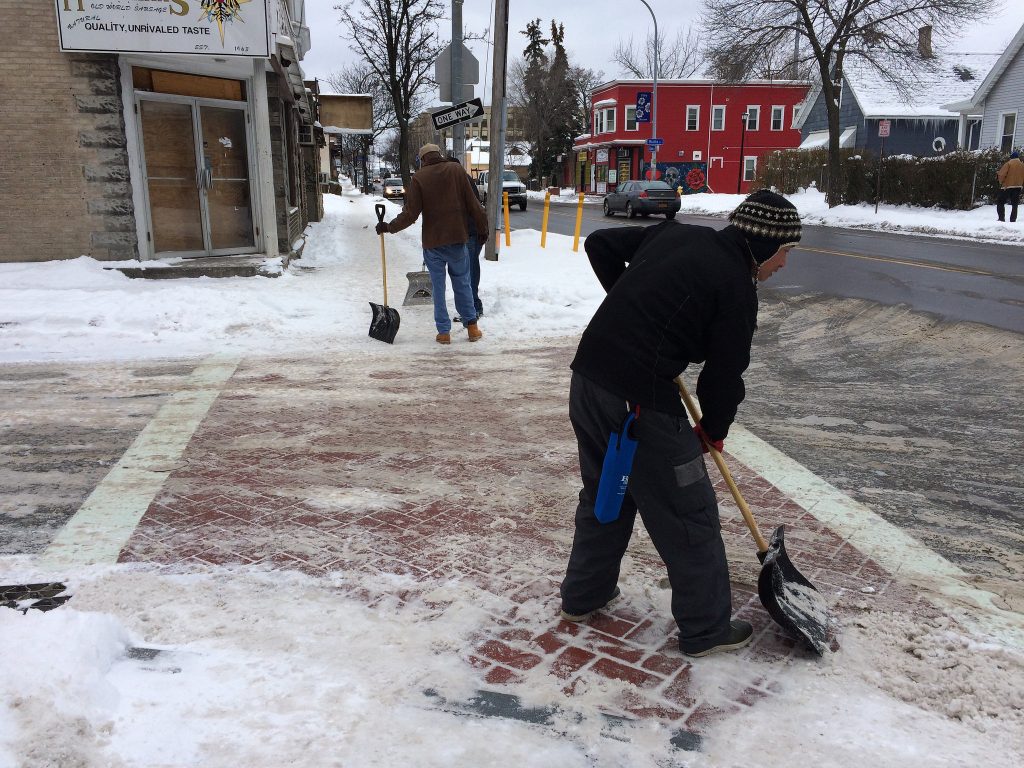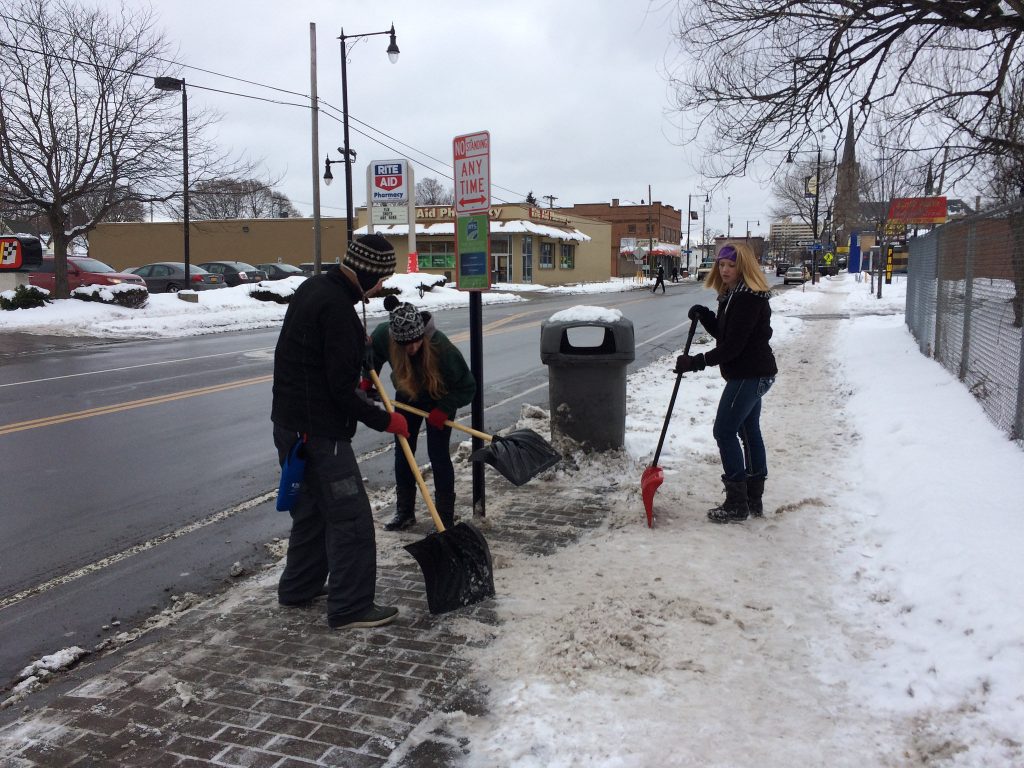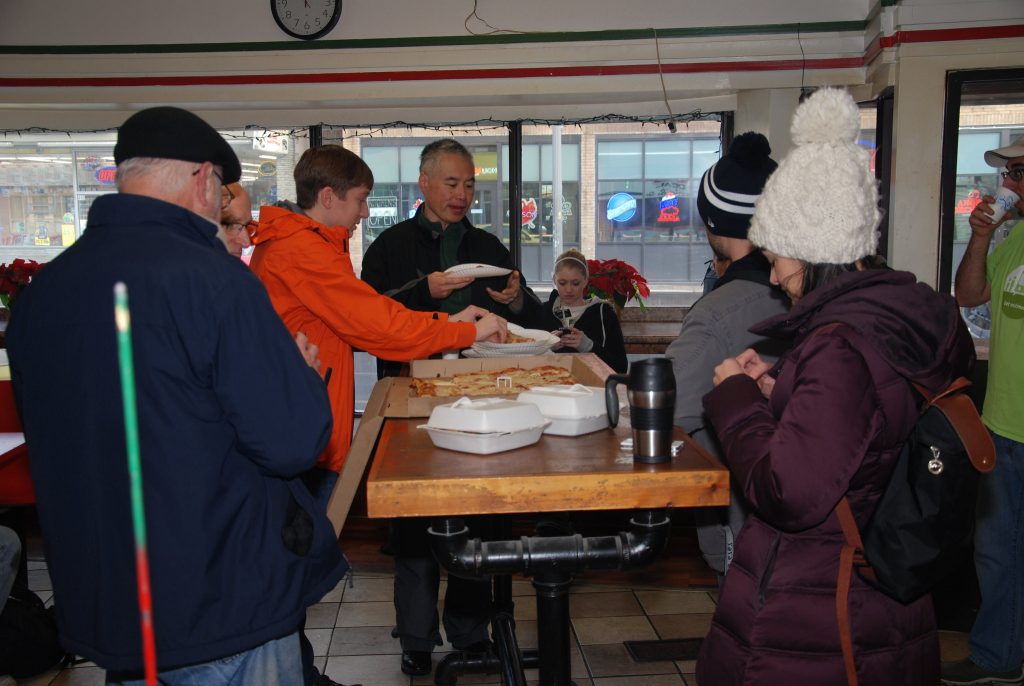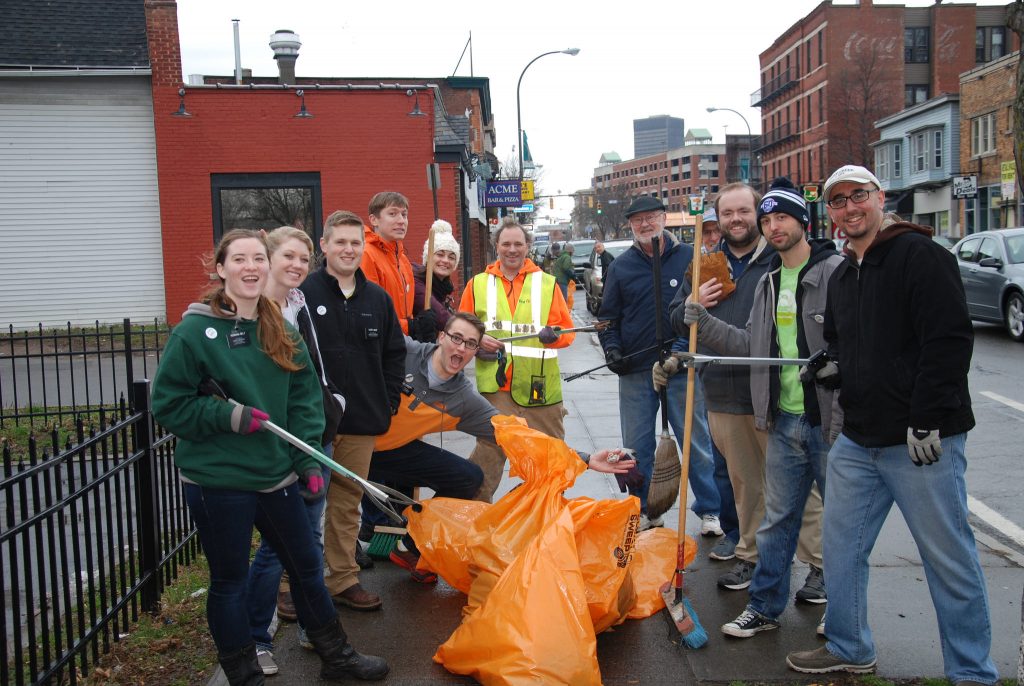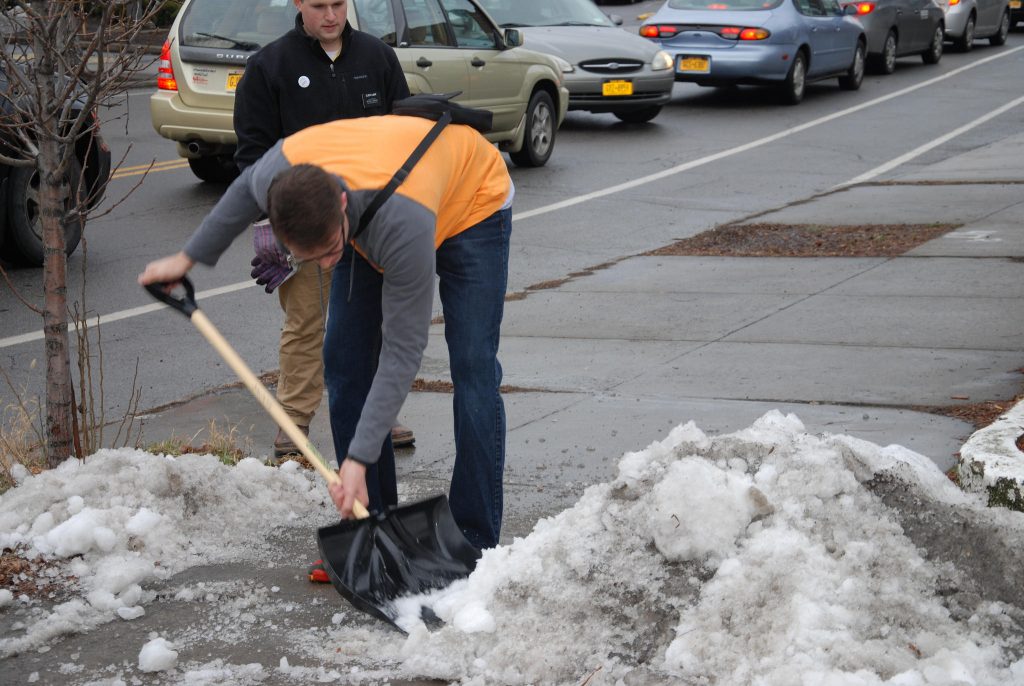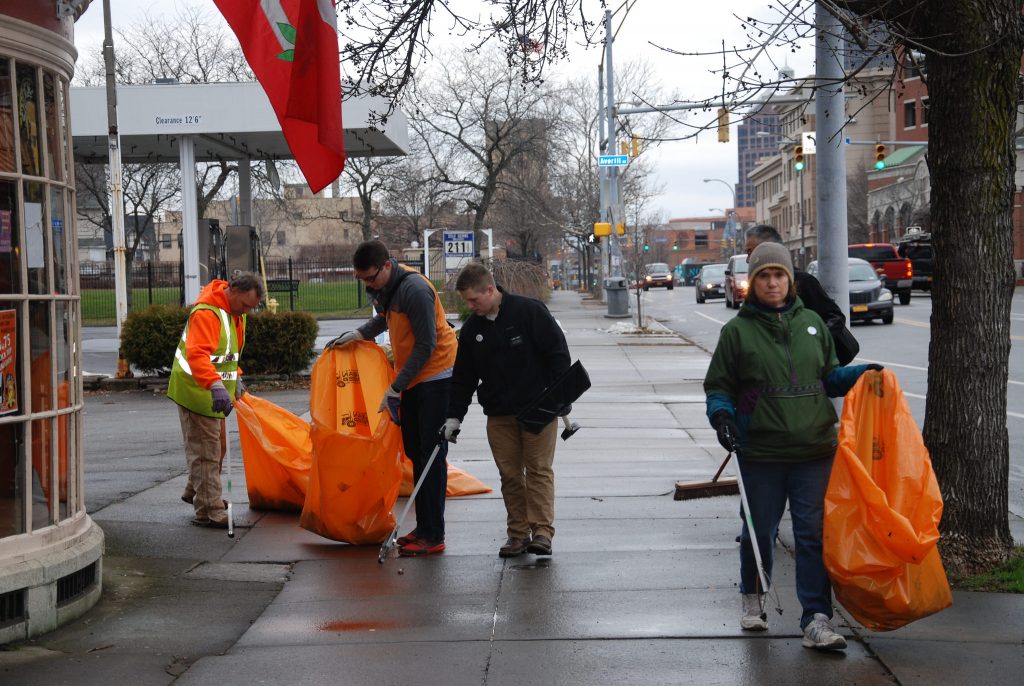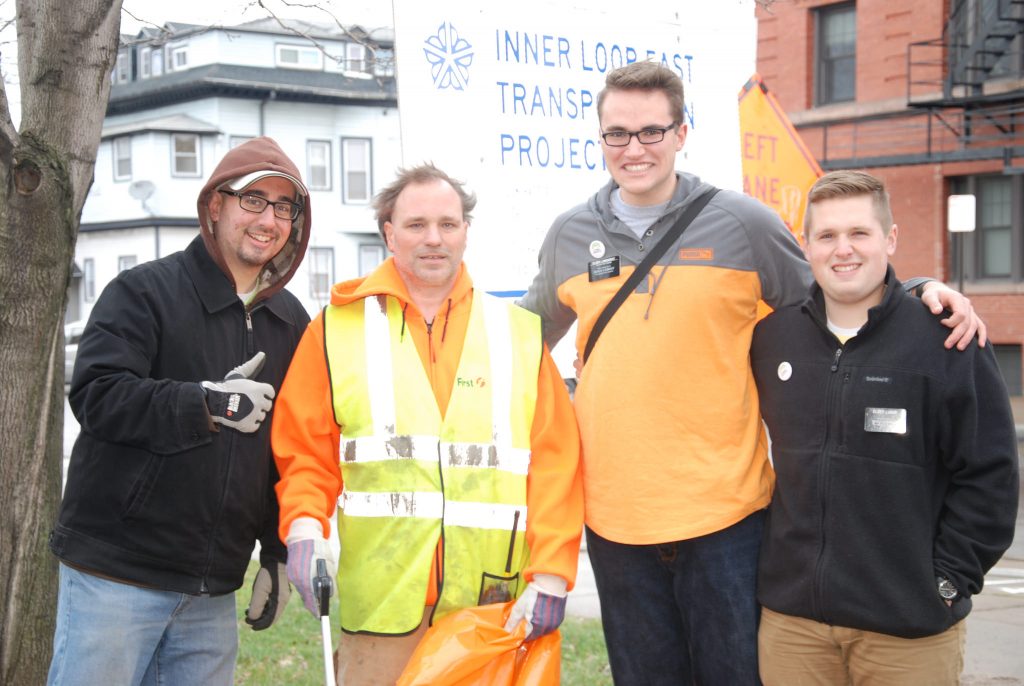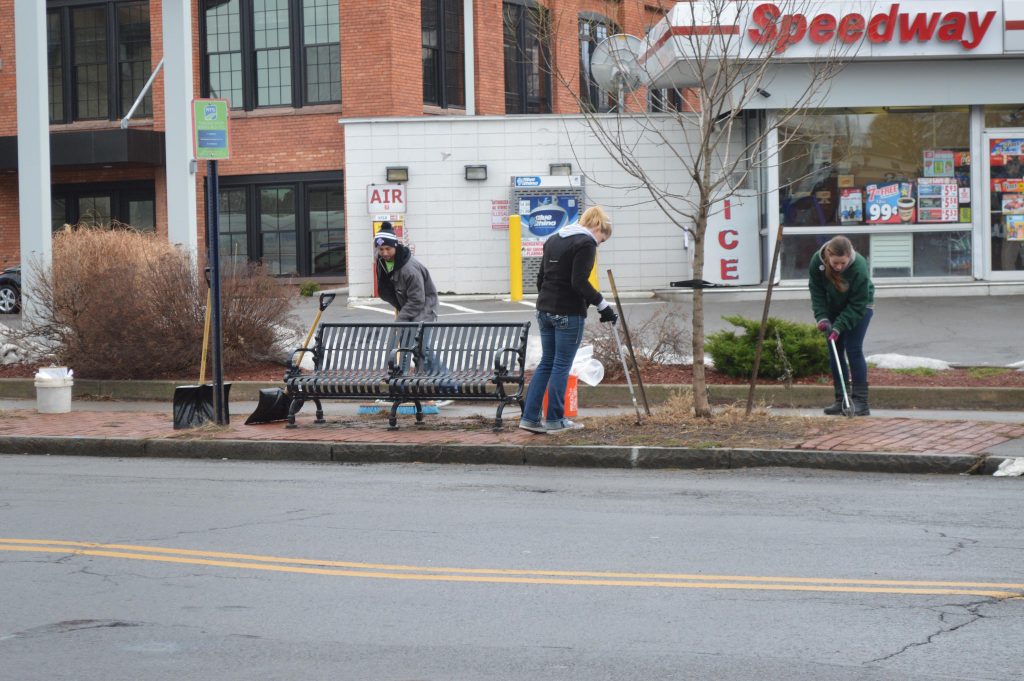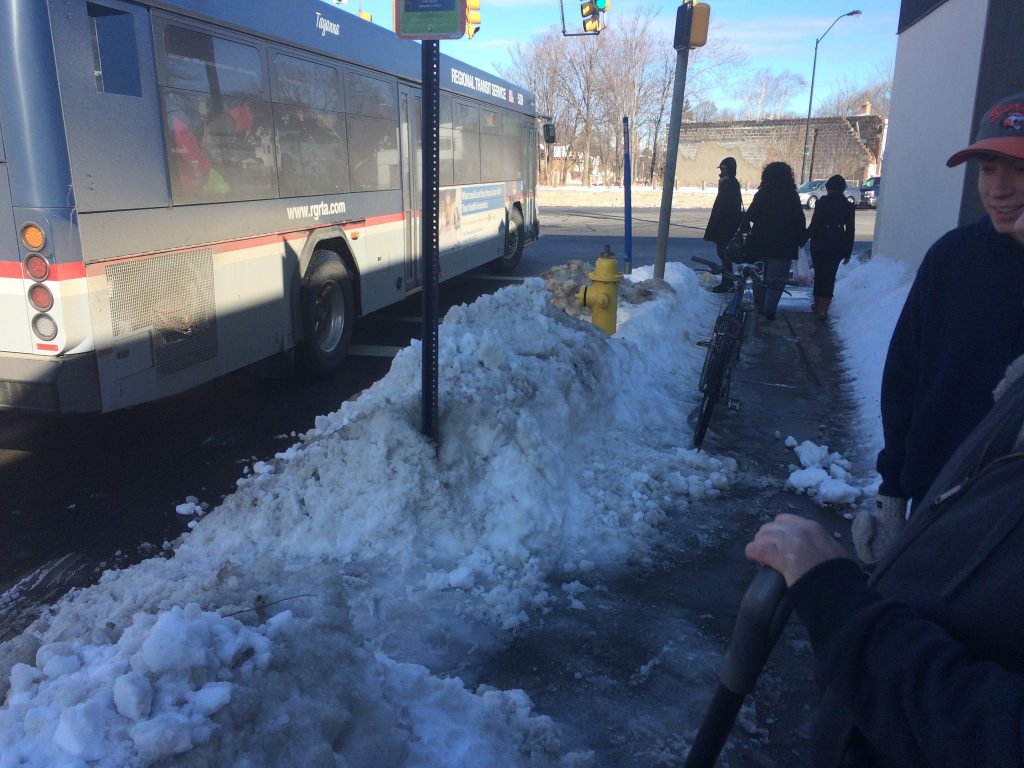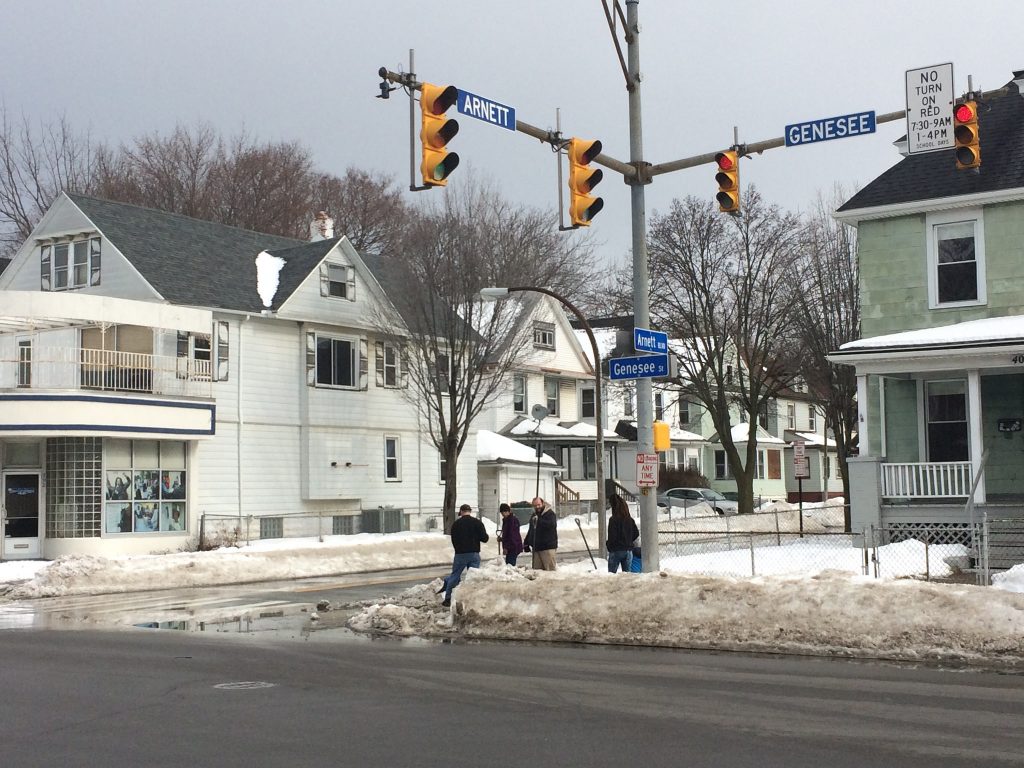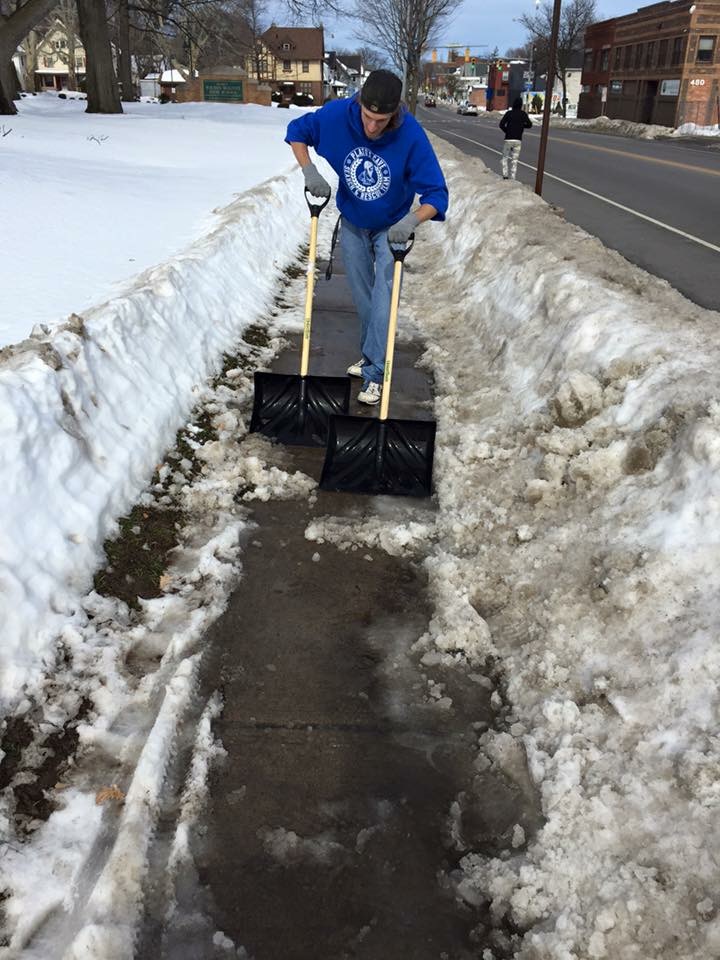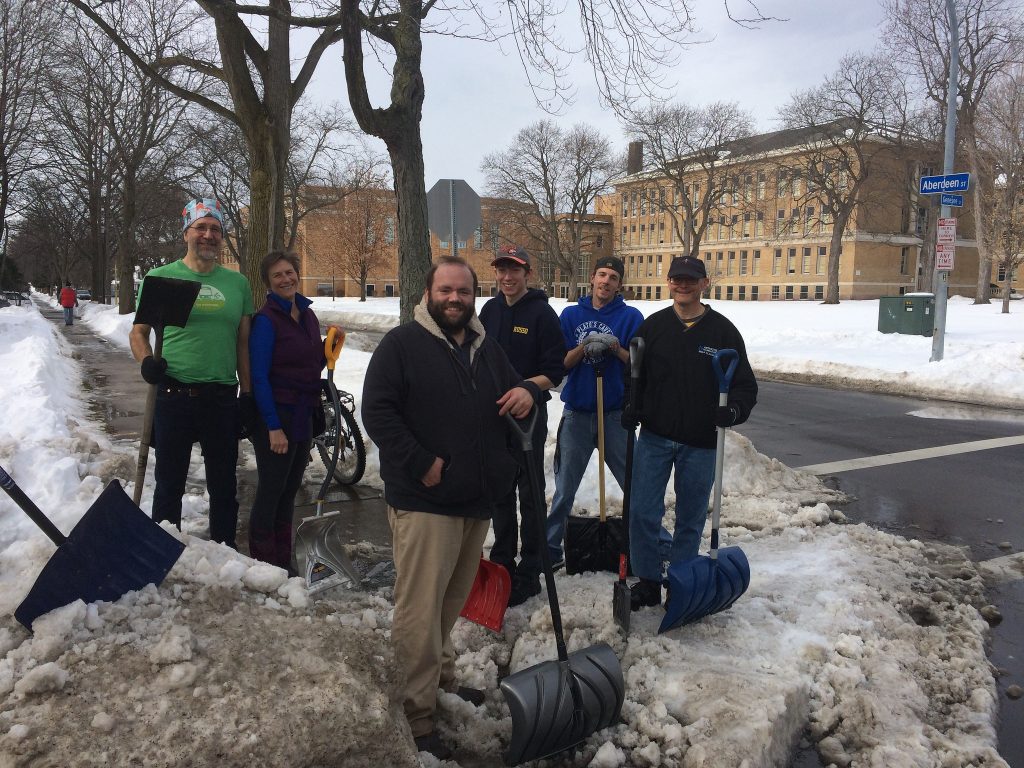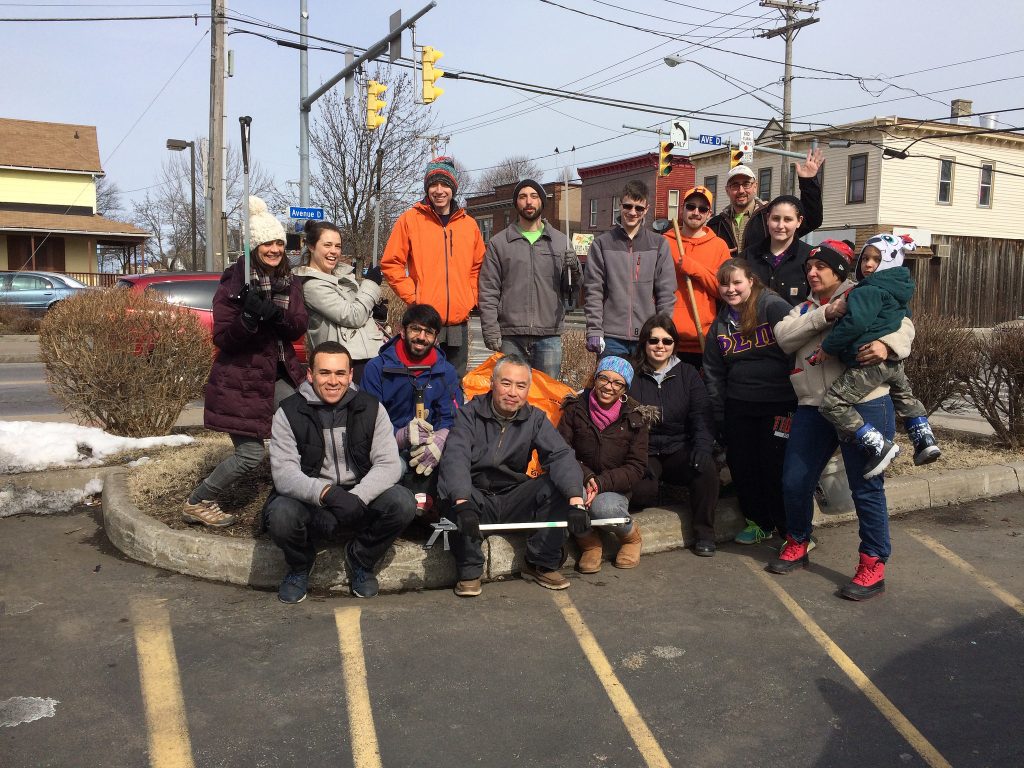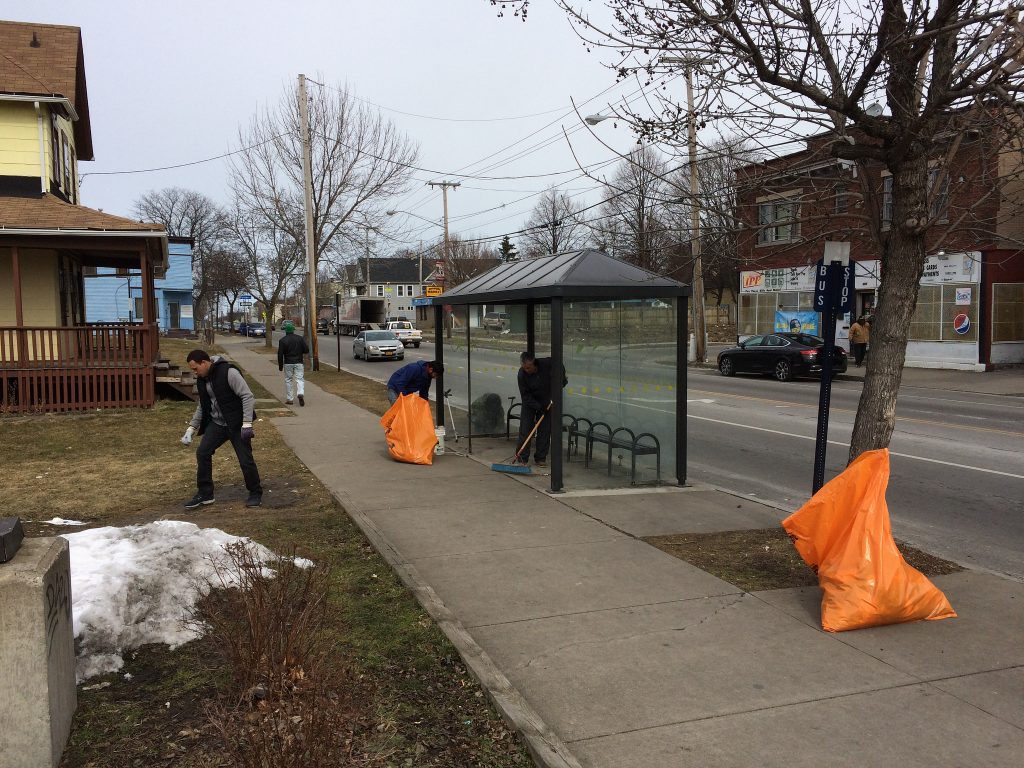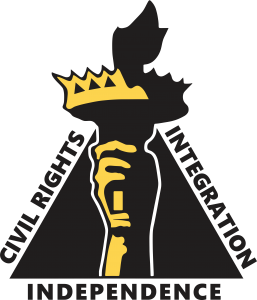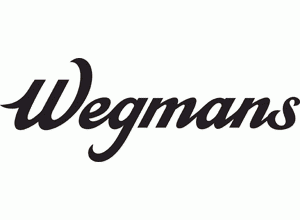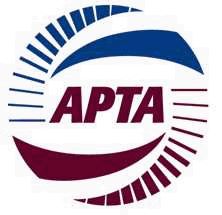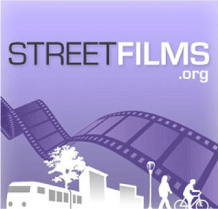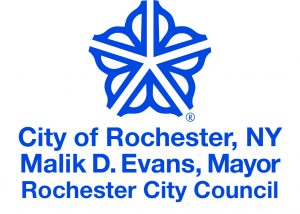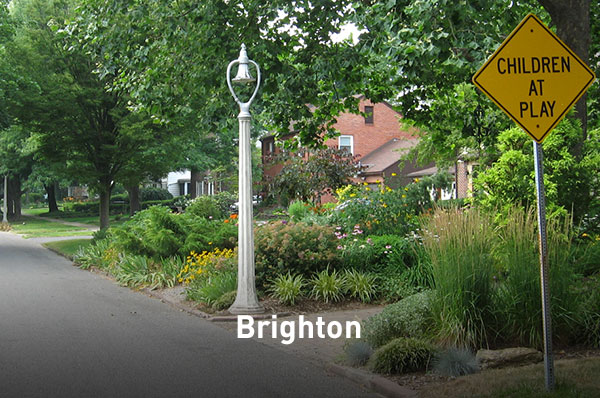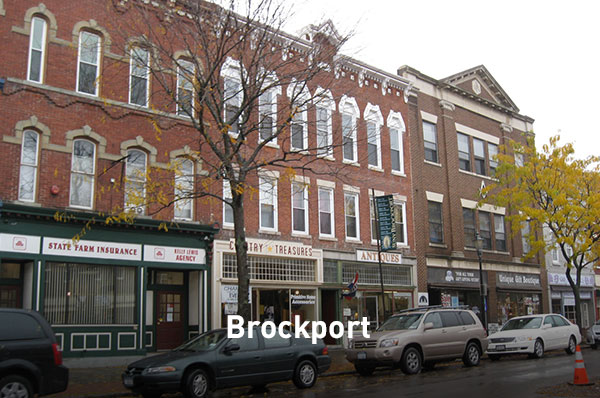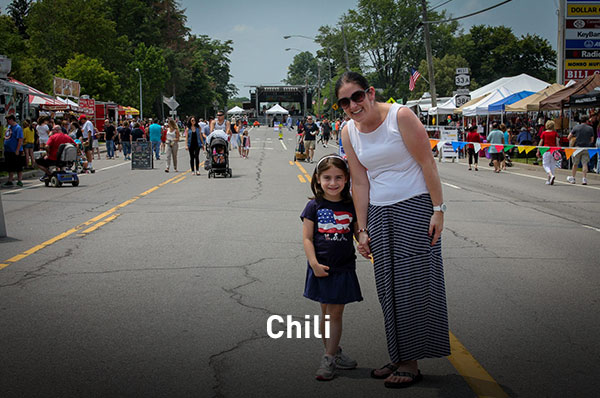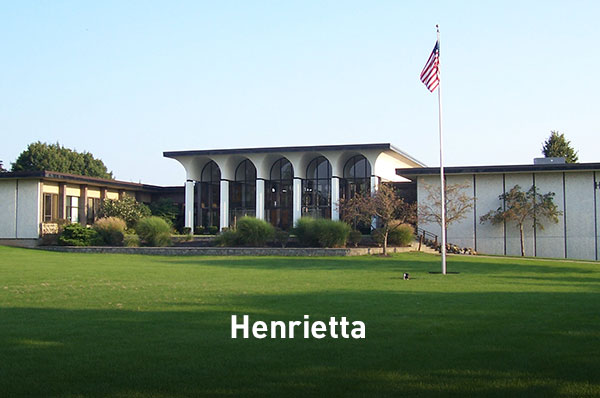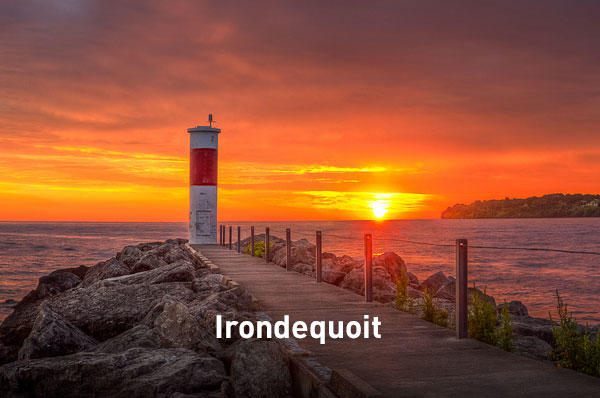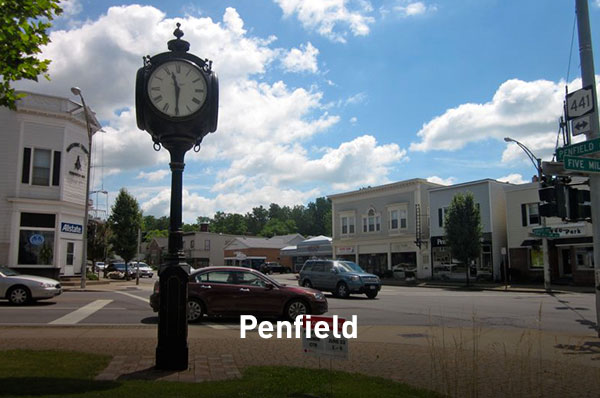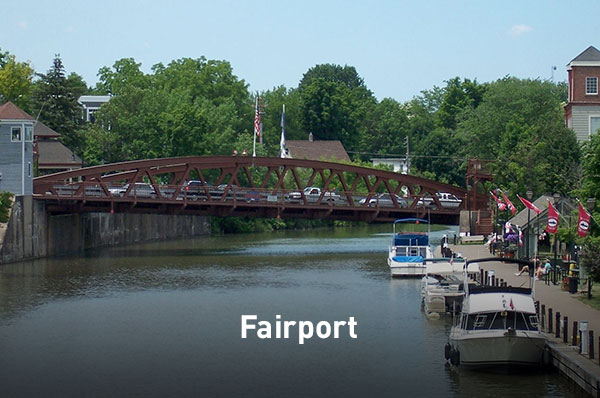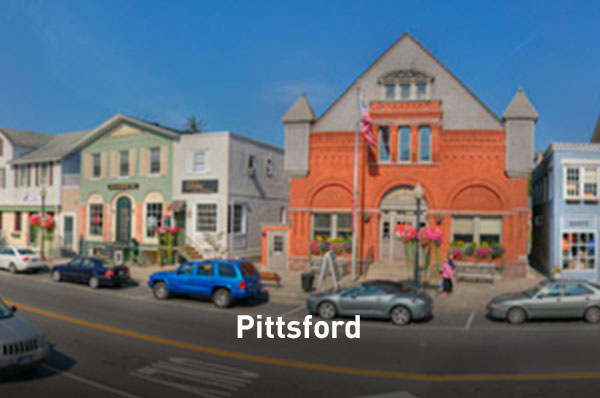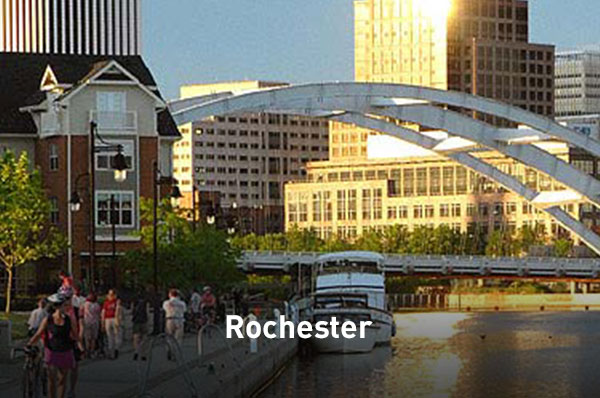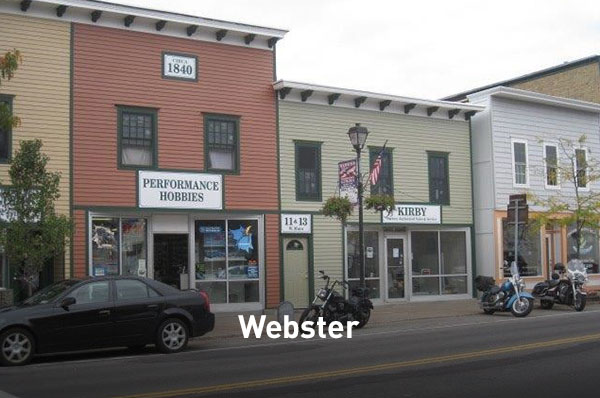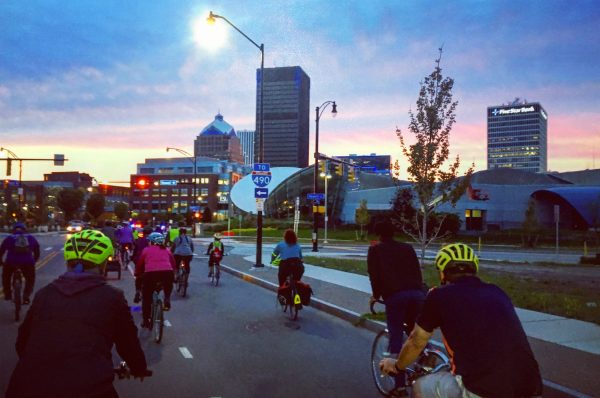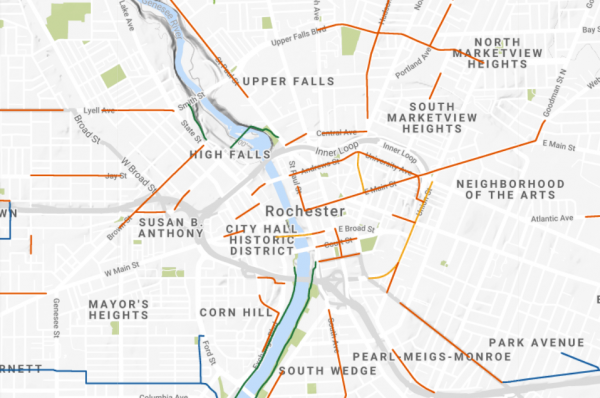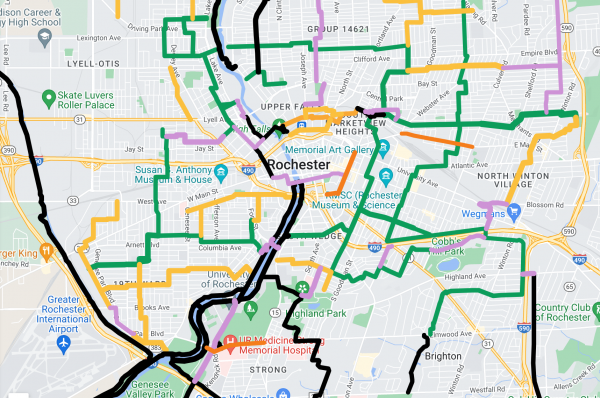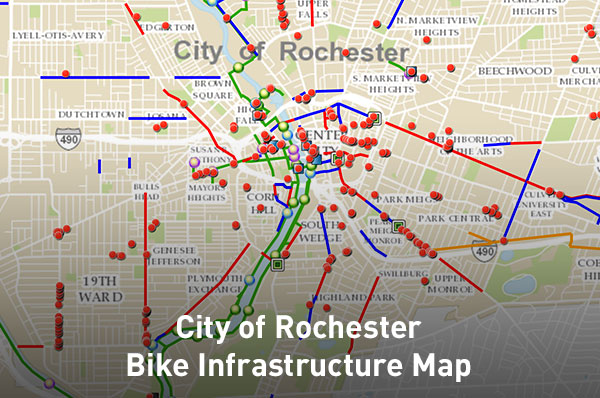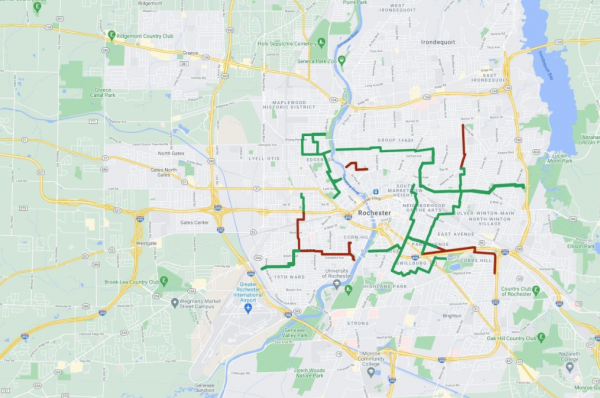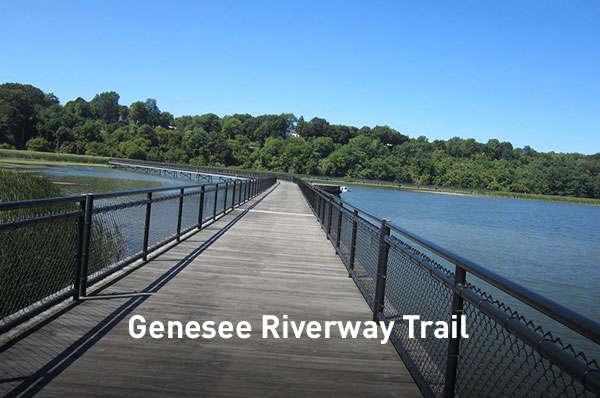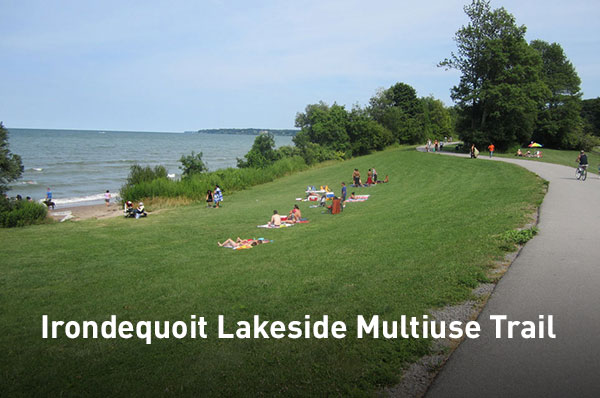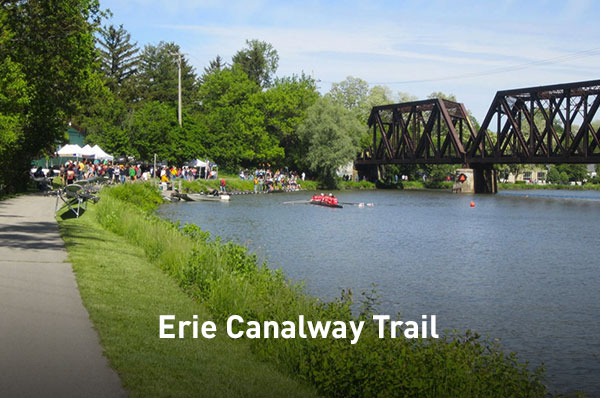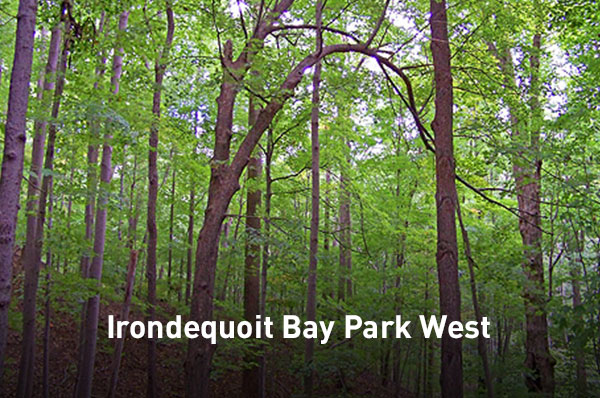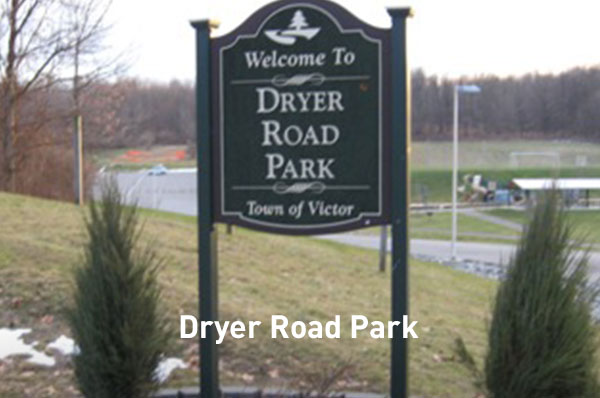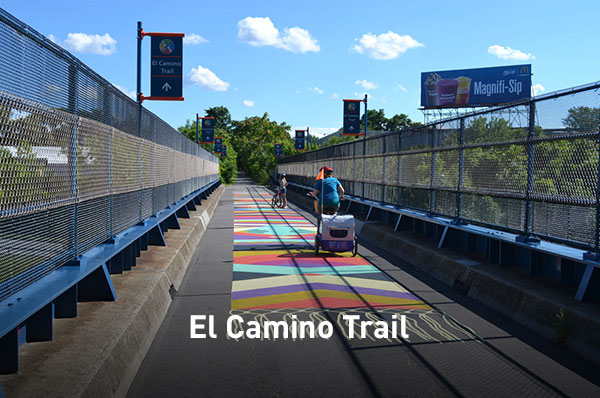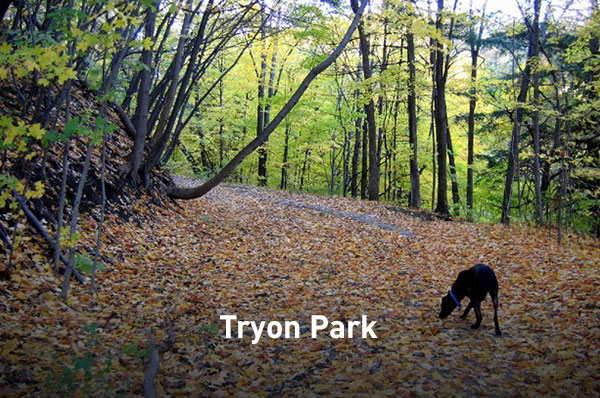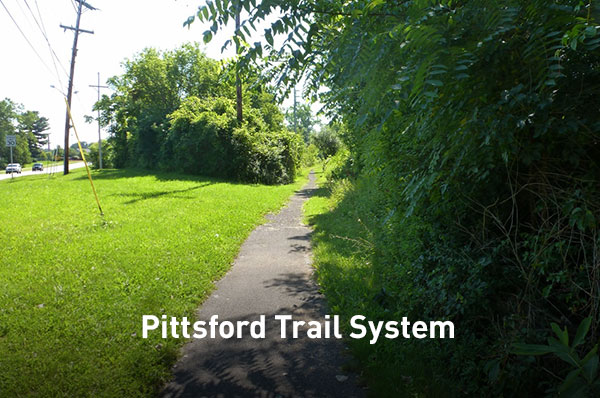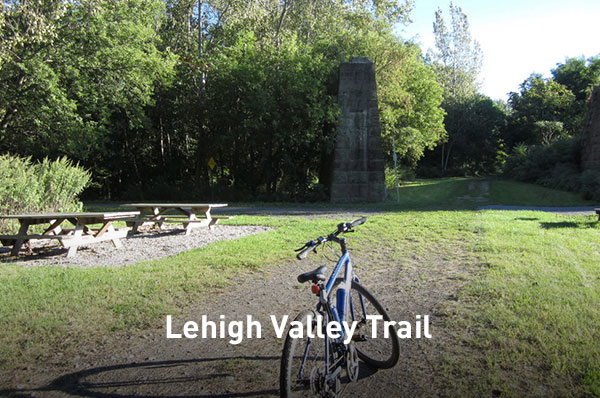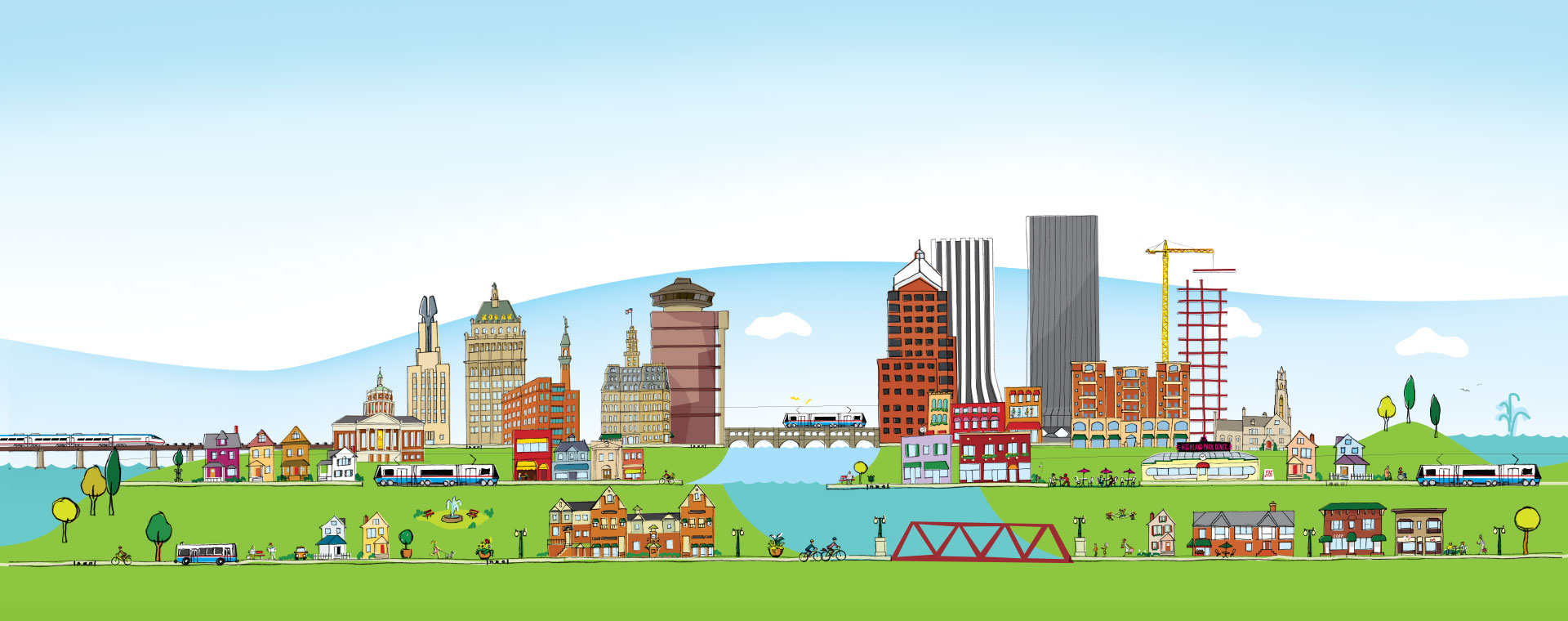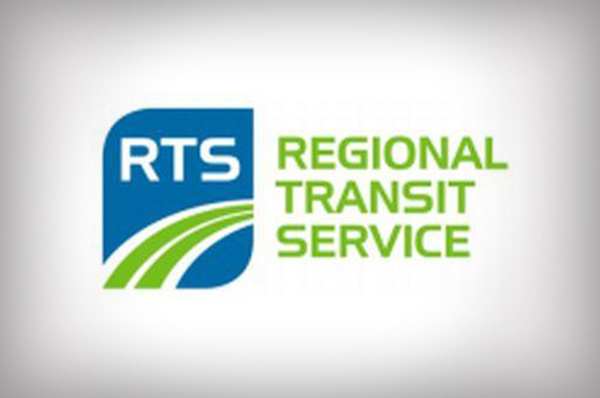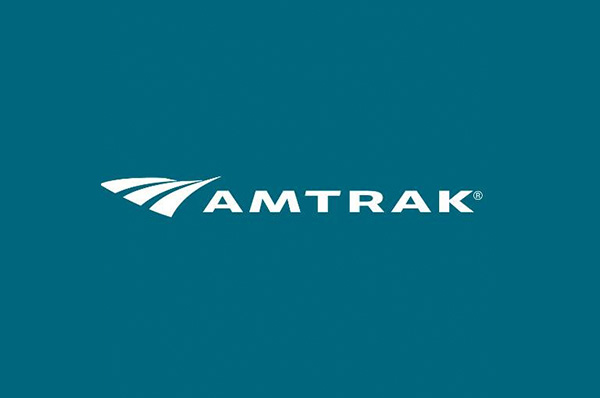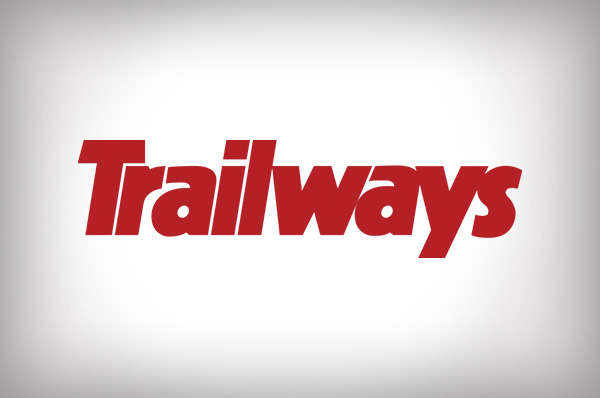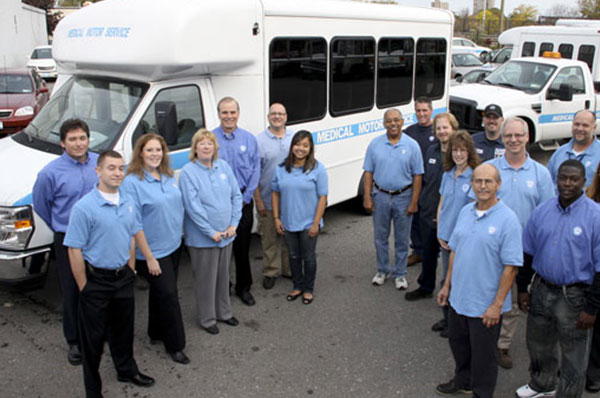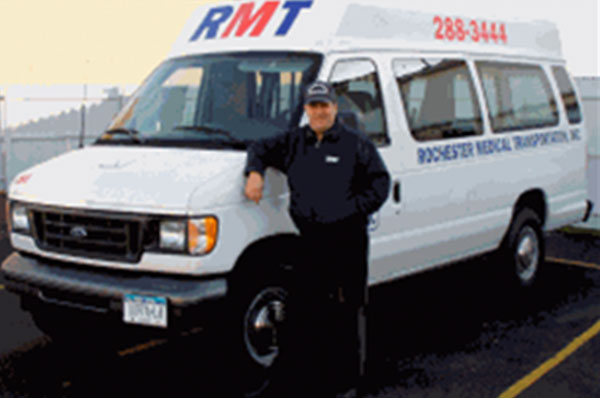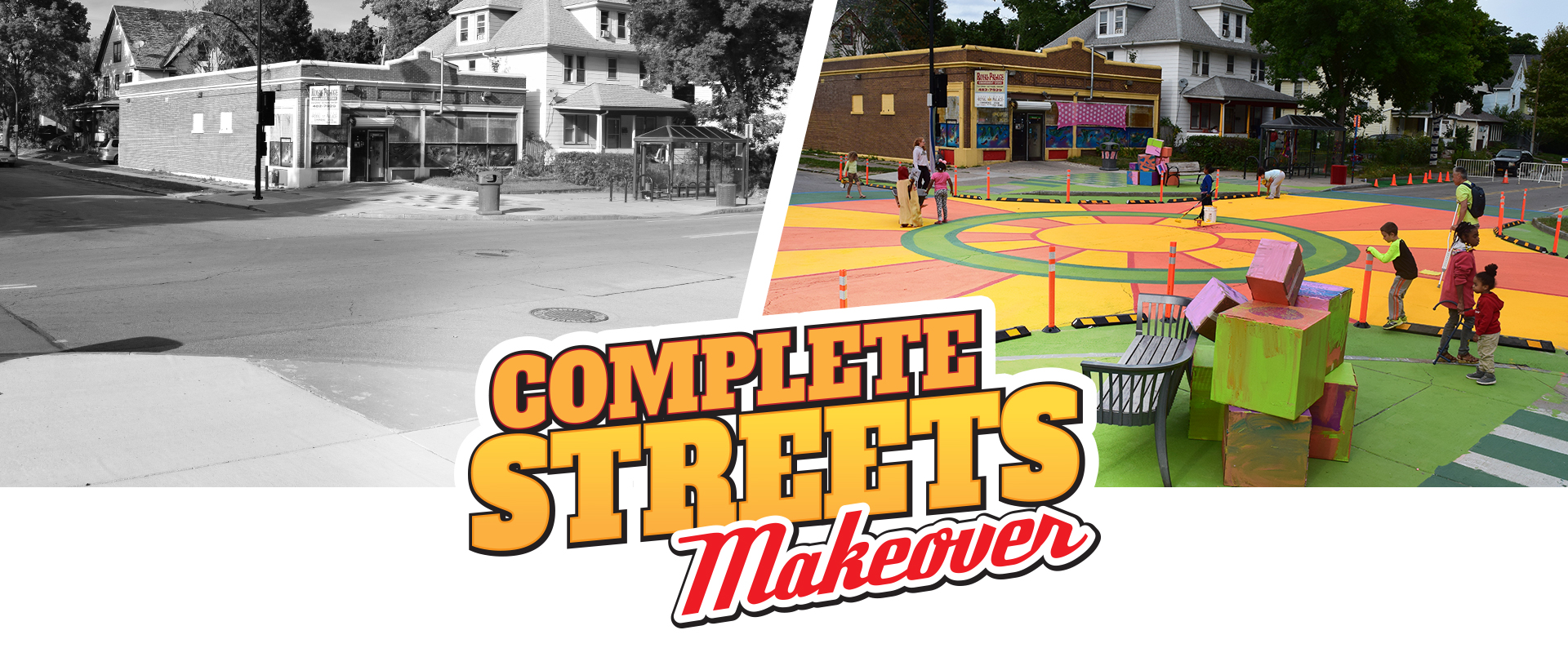
Is there an intersection or trouble spot in your daily travels that doesn’t feel safe to bike or walk?
Nominate it for a
Complete Street Makeover.
Submit your nomination by
Friday, July 30, 2021.
Reconnect Rochester and our team of partners believe streets are for people (not just cars). No one understands what it’s like to use our streets better than those who walk, bike, roll and ride along them everyday.
We need your help identifying the intersections and trouble spots in Monroe County that could be redesigned to make them safer for everyone.
If you’d rather fill out a hard copy, CLICK HERE to print a submission form and mail it to:
Reconnect Rochester
Hungerford Complex
1115 East Main St., Box #61
Rochester, NY 14609
Selection and Eligibility
From the public nominations received, our Steering Committee will select a Complete Streets Makeover Winner based on established judging criteria. Selection factors include crash safety data of incidents at the location, potential for design improvements, proximity to kids, and evidence of community support for change.
Please note that the following previous winners & finalists are NOT eligible because they have already received on-street installations and/or design renderings.
- N. Clinton Ave. / block along La Marketa site
- S. Clinton, S. Goodman & Henrietta St.
- Monroe Ave. & Sutherland St. (Village of Pittsford)
- Parsells Ave & Greeley St.
- Lake Ave. & Phelps St. / block encompassing Lakeview Tower
- Monroe Ave., Canterbury Rd. & Dartmouth St.
What’s in a Makeover
The COMPLETE STREETS MAKEOVER WINNER receives:
- a community workshop to hear resident and stakeholder input, facilitated by the Community Design Center
- a professional street re-design that will make it safer for those walking and biking, created by the engineering team at Stantec
- an on-street installation of temporary design improvements (using equipment from the HealthiKids traffic calming library), and street painting supplies & expertise
- speed data collection as evidence of the project’s impact, and
- ongoing guidance and support of neighborhood follow-up advocacy to make the changes permanent.
To get a sense for the project, watch this short film about our Complete Streets Makeover project at the intersection of Parsells & Greeley in 2018.
From the remaining nominations, the Steering Committee will select two (2) additional locations as DESIGN RENDERING WINNERS. Each of these locations will receive a conceptual drawing by the engineering team at Stantec to show possible street design improvements that would make it safer for those walking and biking. The neighborhood can use the illustration as a starting point for further community conversation, and a tool to advocate for improvements.
What is a “Complete Street?”
A complete street allows everyone—regardless of age, ability or mode of transportation—to safely access that street. It is a street shared by pedestrians, bicyclists, transit riders and motorists. All complete streets are not the same. As Smart Growth America explains:
“There is no singular design prescription for Complete Streets; each one is unique and responds to its community context. A complete street may include: sidewalks, bike lanes (or wide paved shoulders), special bus lanes, comfortable and accessible public transportation stops, frequent and safer crossing opportunities, median islands, accessible pedestrian signals, curb extensions, narrower travel lanes, roundabouts, and more. A Complete Street in a rural area will look quite different from a Complete Street in a highly urban area, but both are designed to balance safety and convenience for everyone using the road.”



Photos on the left show a street designed exclusively for cars; photos on the right show a “complete street” designed for people.
Our goal with the Complete Streets Makeover is to bring attention to complete street design as one critical factor in creating streets that are safe for everyone.
Learn More
Visit Complete Streets Makeover program page to learn more about why we do this, the process components, and short films about our past projects.
